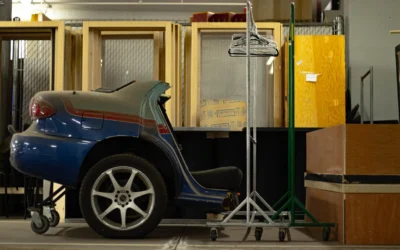After years of study, many university graduates share the same dream — that is, to receive a degree and relocate to another city. A city that promises a better nightlife, more exciting landscapes, a larger number of people to meet and, of course, more opportunities for work in comparison to their quaint hometown.
With summer ahead, the reality of life after university creeps around the corner, and securing a stable career is on the top of every graduate’s priority list. For students in Edmonton, the mentality towards moving away in search of work is no different. However, Edmonton’s recent growth in several industries might have students reconsidering the opportunities here at home.
“We really want 18- to 34-year-olds to look at Edmonton as a place of opportunity where they can come and get ahead financially and they can make a huge impact on their community,” former CEO and president of the Edmonton Economic Development Corporation (EEDC), Brad Ferguson, tells CBC News in an article focusing on the city’s recent rebranding project.
Edmonton’s three-year rebranding project had a budget of $2 million and resulted in a simple solution last summer: the city’s brand would be its own name followed by a small maple leaf — what the EEDC calls a “wordmark.” The focus of the project is to “showcase individual stories of residents that together create the city’s story,” according to a report by Global News.
Alberta’s capital has been recognized with a number of nicknames throughout the years, from “Deadmonton” to “The City of Champions.” While the various names and rebranding efforts continue to spark controversy and give outsiders an opportunity to poke fun at Edmonton’s expense, the city continues to thrive in several industries and avenues.
One of those industries is Edmonton’s tech sector. Our city is home to companies like Jobber, BioWare, and Google’s DeepMind Ltd., an artificial intelligence company that planted its first overseas lab inside a research lab at the University of Alberta.
“We have, for the last couple of decades, had one of the world’s best artificial intelligence research groups in the world in Edmonton,” Jonathan Schaeffer, the university’s dean of science, told CBC news.
DeepMind’s decision to expand its company into Edmonton provides an example of Alberta’s capital becoming more of a destination for emerging and experienced technologists alike.
Aside from being a thriving hub for innovative technology, Edmonton has a variety of other things to take pride in.
“We really want 18- to 34-year-olds to look at Edmonton as a place of opportunity where they can come and get ahead financially and they can make a huge impact on their community.”
—Brad Ferguson
Our city has three restaurants that have made Air Canada’s Best Restaurant list in 2017. Edmonton’s food scene is undeniably maturing with restaurants and spots like Ritchie Market, Café Linnea, and Bar Clementine bringing local ingredients and sophisticated palates to the table.
Edmonton is also becoming a worldwide destination, hosting many high profile events.
While Rogers Place welcomes renowned artists into the city’s Ice District, Edmonton was also recently selected from 10 cities around the world to host the 2018 International Cities and Climate Change Science Conference, which took place in March.
For the second time in the past four years, Edmonton was home to the Ice Cross Downhill World Championship, otherwise known as Red Bull Crashed Ice, for a weekend in March.
Growing up in Edmonton might have had locals believing that world-class cuisine, entertainment, and opportunity thrive anywhere else but here. Today, however, it’s evident that the city is turning a corner when it comes to vibrant downtown life.
Yet, there still exists an aura of reluctance when it comes to living and working within the city. Why is it that the mentality to relocate to bigger cities like Toronto or Vancouver seems to be common among young Edmonton locals?
The answer to this could lie within the same mentality that has attracted humans since the beginning of time — that the grass is always greener on the other side of the fence.
Social psychology explains this way of thinking through a concept called the focusing illusion, where people often narrow in on a specific event instead of looking at the bigger picture.
A 2018 study from the Journal of Experimental Social Psychology shows how this concept influences the way people feel about their own lives and the lives of others.
According to the study, “The ‘focusing illusion’ suggests these impressions of others are incomplete: we may overweight extreme features (the exceptionally good circumstances of envied others and exceptionally bad circumstances of pitied others) at the cost of overlooking the smaller ups and downs of daily life, which inevitably dilute the other person’s overall experience.”
Similarly, the concept might explain why people wish to move away and start a new life in an unfamiliar place.
Marjorie Stiegler, a physician who studied at Harvard, adds to the discussion on the ‘focusing illusion’ when she speaks on the natural tendency for people to overlook different aspects of their lives.
“Humans are programmed to ignore the familiar and mundane, freeing up precious neurons to focus in on potential threats, which explains why most people live in a default state of noticing what irritates them, while quickly acclimating to and then ignoring what is pleasant,” Stiegler says.
Although it might be true that a number of graduates fail to focus on the great opportunities right underneath their noses, it might also be the case that Edmonton simply doesn’t offer as much opportunity, if any at all, for certain industries that people wish to work in.
Western Canada Fashion Week has brought together local designers, artists, and models for 15 years. It’s also drawn in companies like Mosaic Entertainment, whose dramatic series “Tiny Plastic Men” was nominated at the Canadian Screen Awards.
However, for students hoping to pursue a career in either fashion or film, Toronto and Vancouver hold much greater reputations internationally.
For individuals hoping to work in industries that aren’t yet well developed in Edmonton, the choice to relocate seems likely, if not simply mandatory — especially for many recent graduates.
Without a doubt, securing a job after university is extremely important. A 2014 study by Toronto’s research firm Higher Education Strategy Associates (HESA), shows that out of a number of factors that affect the quality of life, having access to good jobs ranked the highest on a chart comparing 14 other factors.
To understand exactly why each eager graduate decides to move out of Edmonton for work would be a daunting and impossible task. It is important to note that the reasons behind relocation are varied.
However, if the city’s industries continue to grow, fewer of these reasons will be due to the perception that Edmonton is a boring city with nothing to offer for business opportunity and innovation.
Graphics by Kia Valdez Bettcher.





0 Comments